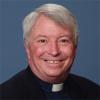Pope Francis’ statements of late -- on solidarity with the poor, on the need for community and on refocusing the church’s energies away from a narrow focus on sexual issues -- may sound shocking to some. This is a much different tone than the image of the papacy in recent times.
But Francis is merely walking in the footsteps of a long line of Jesuit reformers, all the way back to one of the co-founders of the Society of Jesus, Blessed Peter Faber. In his one-on-one interview published Thursday, the pope himself refers to Faber as a role model for his own ministry and as a Jesuit reformer.
Peter Faber grew up in the French Alps. Although not well educated as a youth, he had a sharp mind. Eventually he went to study in Paris, where he met Francis Xavier, and the two became fast friends.
In Paris Faber also encountered Ignatius of Loyola. He tutored Ignatius on Aristotelian philosophy while Ignatius formed Faber’s spirituality; under Ignatius’ guidance, Faber mastered the Spiritual Exercises. In 1534, he was ordained a priest and later that year on Aug. 15, he and six other men, including Ignatius and Francis Xavier, took vows as the first members of what became the Jesuit order.
Faber had a remarkable gift of connecting with people in all walks of life. The result was a recommitment of Christian piety. At the Diet of Ratisbon in 1541, Faber was shocked at the decadence of the Catholic clergy in the face of strong Protestant unrest. His remedy: reform of the Catholic clergy. But his approach was different. He was engaging, open and gentle in conveying the Gospel message.
Faber was all about community and connection. He had a great devotion to the communion of saints and had a special devotion to his guardian angel. Whenever Faber entered a town he would invoke the saints and angels associated with that place. Like Francis De Sales after him, wherever Faber went he made new friends across all strata of society. His deep desire was to bring each person he met to a closer friendship and loved to engage in conversation.
His openness and gentleness resulted in many conversions, in a lowering of hostility in places he was sent and in vocations among many young men to the Society of Jesus -- among them, St. Peter Canisius. In addition to his ministry to the church in Germany, Faber crisscrossed Europe and helped to found the Jesuit order in Portugal. There he helped to foster the vocation of another future Jesuit saint, Fr. Francis Borgia.
Invited by Pope Paul III to act on behalf of the Holy See as an expert at the Council of Trent, Faber, at age 40, became ill and died on Aug. 1, 1546. Blessed Peter’s feast day is celebrated on Aug. 2.
That characteristic Jesuit so characteristic of the life and ministry of Peter Faber -- a spirit of engagement with folks in all walks of life, of openness and conviction that “draws more flies with a spoonful of honey than a barrel of vinegar” -- is serving as the modus operandi of Pope Francis as well.
Abraham Lincoln’s great statement of his second inaugural “with malice toward none, with charity for all” rings equally true in the ministry of the great Jesuit and this current Jesuit’s early papacy as well. As I read and resonated with Pope Francis’ words in his interview in America -- his simplicity of spirit, his reminder that we are all called to embrace those we encounter with compassion and gentleness -- he reminds me of what is still exciting about the vision of the Gospel.
As with Blessed Peter Faber and other Jesuits before him, the Gospel is ultimately “good news.” It is discovered not in appeals to fear and dominative power, but in connection and collaboration. It is discovered in the joy of service, in not taking ourselves too seriously, in seeing that the communion of saints can be found in the here-and-now just as much as in the life to come.
[Fr. Charles Morris is a priest in the Detroit archdiocese. He is an assistant professor of religious studies at Madonna University, in Livonia, Mich.]
Editors note: We can send you an biweekly email alert with content from The Francis Chronicles. Follow the directions on our email alert sign up page.




